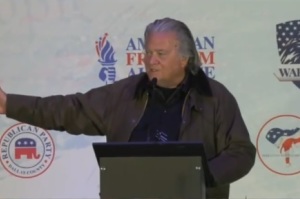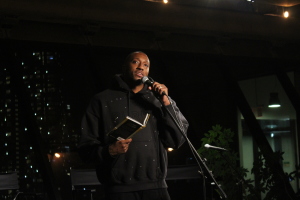Introduction to One-Way Love
I've never been more excited about a writing project than I am about my forthcoming book One-Way Love: Inexhaustible Grace for an Exhausted World (David C. Cook). The final edits have been turned in and it will be released on October 1. It's a "manifesto" of sorts, where I issue a passionate call back to the heart of the Christian faith–grace. Below is the introduction to give you a sense of what the book is about.
A few years ago, I read something astonishing. Dr. Richard Leahy, a prominent psychologist and anxiety specialist was quoted as saying, "The average high school kid today has the same level of anxiety as the average psychiatric patient in the early 1950s." It turns out the problem wasn't limited to an age group. In 2007 The New York Times reported that three in ten American women confess to taking sleeping pills before bed most nights. The numbers are so high and unprecedented that some are calling it an epidemic.
This came across my screen about the same time that the news broke about the meteoric rise of Americans claiming no religious affiliation, shooting up from 7 percent in 1990 to 16 percent in 2010. When those under the age of 30 were polled, that percentage more than doubled again, to nearly 35 percent. While the numbers themselves were a bit of a shock, I wish I had been more surprised by the findings. From my vantage point as a pastor, I can tell you, it is truly heartbreaking out there. The good news of God's inexhaustible grace for an exhausted world has never been more urgent.
What I see more than anything else is an unquestioning embrace of performanicism in all sectors of life. Performancism is the mindset that equates our identity and value directly with our performance and accomplishments. Performancism casts achievements not as something we do or don't do but as something we are (or aren't). The colleges those teenagers eventually attend will be more than the place where they are educated- – they will be the labels which define their value as a human being, both in the eyes of their peers, their parents, and themselves. The money we earn, the car we drive, isn't merely reflective of our occupation,; it is reflective of us, period. How we look, how intelligent we are, and what people think of us is more than descriptive,; it is synonymous with our worth. In the word of performancism, success equals life, and failure is tantamount to death. This is the reason why people would rather end their lives than confess that they've lost their job, or made a bad investment.
This is not to say that accomplishments are somehow bad, or even that they aren't incredibly important. It is simply to say that there is a difference between taking pride in what we do and worshiping it. When we worship at the altar of performance-and make no mistake, performancism is a form of worship-we spend our lives frantically propping up our image or reputation, trying to do it all, and do it all well, often at a cost to ourselves and those we love. Life becomes a hamster wheel of endless earning and proving and maintenance and management and controlling, where all we can see is our own feet. Performancism causes us to live in a constant state of anxiety, fear, and resentment, until we end up heavily medicated, in the hospital, or just really, really unhappy.
The Christian church has sadly not proven to be immune to performancism. Far from it, in fact. In recent years a handful of books have been published urging a more robust, radical, and sacrificial expression of the Christian faith. I even wrote one of them-Unfashionable: Making a Difference in the World by being Different. I heartily "amen" the desire to take one's faith seriously and demonstrate before the watching world a willingness to be more than just Sunday churchgoers. That Christians would want to engage the wider community with God's sacrificial love–living for their neighbor instead of for themselves-is a wonderful thing and should be applauded. The unintended consequence of this push, however, is that if we're not careful we can give people the impression that Christianity is first and foremost about the sacrifice we make for Jesus rather than the sacrifice Jesus made for us; our performance for him rather than his performance for us; our obedience for him rather than his obedience for us. The hub of Christianity is NOT not "do something for Jesus." The hub of Christianity is "Jesus has done everything for you," and I fear that too many people, both inside and outside the church, have heard this plea for intensified devotion and concluded that the focus of the Christian faith is our love for God instead of God's love for us. Don't get me wrong, what we do is important. But it is infinitely less important than what Jesus has done for us.
Furthermore, it often seems that the good news of God's grace has been tragically hijacked by an oppressive religious moralism that is all about rules, rules, and more rules; doing more, trying harder, self-help, getting better, and fixing, fixing, fixing–-ourselves, our kids, our spouse, our friends, our enemies, our culture, our world. Christianity is perceived as being a vehicle for good behavior and clean living-and the judgments that result from them-rather than the only recourse for those who have failed over and over and over again.
Sadly, too many churches have helped to perpetuate the impression that Christianity is primarily concerned with legislating morality. Believe it or not, Christianity is not about good people getting better. If anything, it is good news for bad people coping with their failure to be good. Too many people have walked away from the church not because they're walking away from Jesus, but because the church has walked away from Jesus. Ask any of "religious nones" who answered their census questions differently in past years, and I guarantee you will hear a story about either spiritual burn-out or heavy-handed condemnation from fellow believers, or both. Author Jerry Bridges puts it perfectly when he writes:
My observation of Christendom is that most of us tend to base our relationship with God on our performance instead of on His grace. If we've performed well-whatever "'well"' is in our opinion-then we expect God to bless us. If we haven't done so well, our expectations are reduced accordingly. In this sense, we live by works, rather than by grace. We are saved by grace, but we are living by the "'sweat"' of our own performance. Moreover, we are always challenging ourselves and one another to '"try harder'." We seem to believe success in the Christian life is basically up to us; our commitment, our discipline, and our zeal, with some help from God along the way. The realization that my daily relationship with God is based on the infinite merit of Christ instead of on my own performance is a very freeing and joyous experience. But it is not meant to be a one-time experience; the truth needs to be reaffirmed daily.
What Bridges describes is nothing less than the human compulsion for taking the reigns of our lives and our salvation back from God, the only One remotely qualified for the job. "Works righteousness" is the word that the Protestant Reformation used to describe spiritual performancism, and it has plagued the church-and the world-since the Garden of Eden. It might not be too much of an overstatement to say that if Jesus came to proclaim good news to the poor, release to the captives, freedom for the oppressed, sight to the blind, then Christianity has come to stand for, and in practice promulgate, the exact opposite of what its founder intended (Luke 4:18–19).
It is a terrible irony that the very pack of people who claim that God has unconditionally saved and continues to sustain them by his free grace are the very ones who push back most violently against it. Far too many professing Christians sound like ungrateful children who can't stop biting the very hand that feeds them. It amazes me that you will hear great concern from inside the church about "too much grace," but rarely will you ever hear great concern from inside the church about "too many rules." Indeed, the absurdity of God's indiscriminate grace always gets "religious" people up in arms. Why? Because we are by nature glory-hoarding, self-centered control freaks–-God-wannabe's. That's why.
But the situation is more than ironic, it is tragic. It is tragic because this kind of moralism can be relied upon to create anxiety, resentment, rebellion, and exhaustion. It can be counted upon to ensure that the church hemorrhages the precise people that Jesus was most concerned with: sinners.
Are you exhausted? Angry? Anxious? Fearful? Guilty? Lonely? In need of some comfort and genuinely good news? In other words, are you at all like me? Then this book is for you. I can't promise it will answer all your questions or cover every theological base. But I can promise that you won't hear any "buts,", you won't feel the tapping of the brakes, and you won't read a list of qualifications. What you will encounter is "grace unmeasured, vast and free,", the kind that will frighten and free you at the same time. That's what grace does, after all.
It is high time for the church to honor its Founder by embracing sola gratia anew, to reignite the beacon of hope for the hopeless and point all of us bedraggled performancists back to the freedom and rest of the Cross. To leave our "if's," "and's," or "but's" behind and get back to proclaiming the only message that matters-and the only message we have-the Word about God's one-way love for sinners. It is time for us to abandon once and for all our play-it-safe religion, and, as Robert Farrar Capon so memorably put it, get drunk on grace. Two- hundred-proof, unflinching grace. It's shocking and scary, unnatural and undomesticated-…but it is also the only thing that can set us free and light the church, and the world, on fire.



























